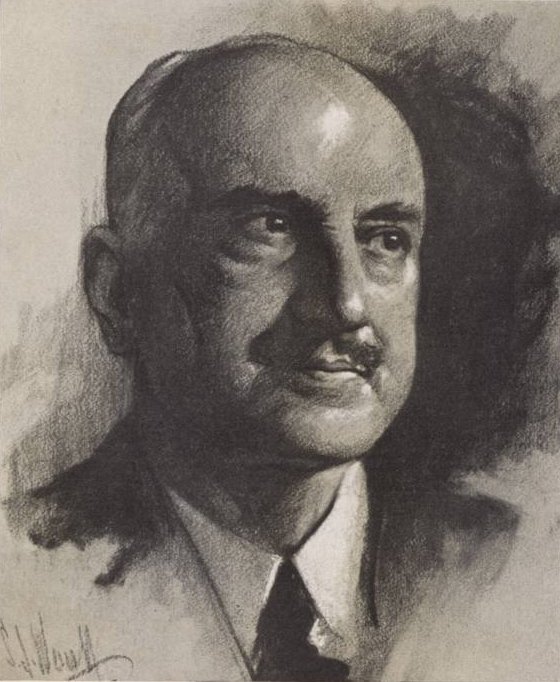George Santayana nejznámější citáty
George Santayana: Citáty o životě
George Santayana: Citáty o minulosti

„Ti, kteří si nepamatují minulost, jsou odsouzeni k tomu, aby si ji zopakovali.“
Zdroj: George Santayana. Citaty.net [online]. [cit. 2008-12-03]. Dostupné online. http://citaty.net/autori/santayana-george
George Santayana citáty a výroky
Zdroj: [Exley, Helen, Pro klid v duši 365 : Citáty na každý den, Zuzana Pavlová, Slovart, Praha, 2018, 368, 978-80-7529-518-7, 269]
The life of reason III. Reason in religion
„Opakování je jediná forma stálosti, jaké může příroda dosáhnout.“
Originál: (en) Repetition is the only form of permanence that Nature can achieve.
Zdroj: [Barrow, John D., Jan Novotný, Teorie všeho, Mladá fronta, Praha, 1999, 96, 82-204-0602-6]
Zdroj: [Barrow, John D., New Theories of Everything, https://books.google.cz/books?hl=cs&id=JJ1aDC_wYM0C&q=Santayana#v=snippet&q=Santayana&f=false, Oxford University Press, Oxford, 2007, The copy-cat principle, 0191579378]
George Santayana: Citáty anglicky
Zdroj: The Life of Reason: The Phases of Human Progress (1905-1906), Vol. V, Reason in Science, Ch. 3 "Mechanism"
The Works of George Santayana p. 65
Scepticism and Animal Faith (1923)
“The pint would call the quart a dualist, if you tried to pour the quart into him.”
Zdroj: The Genteel Tradition in American Philosophy (1911), p. 60
"The Irony of Liberalism"
Soliloquies in England and Later Soliloquies (1922)
Zdroj: Winds of Doctrine: Studies in Contemporary Opinion (1913), p. 36
Paul Mariani, "Lost Puritan: A Life of Robert Lowell" (1994), p. 159
Misattributed
"Friendships"
Soliloquies in England and Later Soliloquies (1922)
“[Everything] ideal has a natural basis and everything natural an ideal development.”
The Life of Reason: The Phases of Human Progress (1905-1906), Vol. I, Reason in Common Sense
Zdroj: The Life of Reason: The Phases of Human Progress (1905-1906), Vol. III, Reason in Religion, Ch. I
https://owlquote.com/quotes/happiness-is-the-only-2jy3r26
The Life of Reason: The Phases of Human Progress (1905-1906), Vol. I, Reason in Common Sense
Interpretations of Poetry and Religion http://hdl.handle.net/2027/uc2.ark:/13960/t3028sf4m?urlappend=%3Bseq=72 (1900), p. 54
Other works
"The Irony of Liberalism"
Soliloquies in England and Later Soliloquies (1922)
The Life of Reason: The Phases of Human Progress (1905-1906), Vol. V, Reason in Science
https://owlquote.com/quotes/it-is-veneer-rouge-5g358g7
Other works
This contains principally yellow chick-peas, with a little bacon, some potatoes or other vegetables and normally also small pieces of beef or sausage, all boiled in one pot at a very slow fire; the liquid of the same makes the substantial broth that is served first.
Zdroj: Persons and Places (1944), p. 14
“I was still “at the church door.””
Yet in belief, in the clarification of my philosophy, I had taken an important step. I no longer wavered between alternative views of the world, to be put on or taken off like alternative plays at the theatre. I now saw that there was only one possible play, the actual history of nature and of mankind, although there might well be ghosts among the characters and soliloquies among the speeches. Religions, all religions, and idealistic philosophies, all idealistic philosophies, were the soliloquies and the ghosts. They might be eloquent and profound. Like Hamlet's soliloquy they might be excellent reflective criticisms of the play as a whole. Nevertheless they were only parts of it, and their value as criticisms lay entirely in their fidelity to the facts, and to the sentiments which those facts aroused in the critic.
p. 169
Persons and Places (1944)
